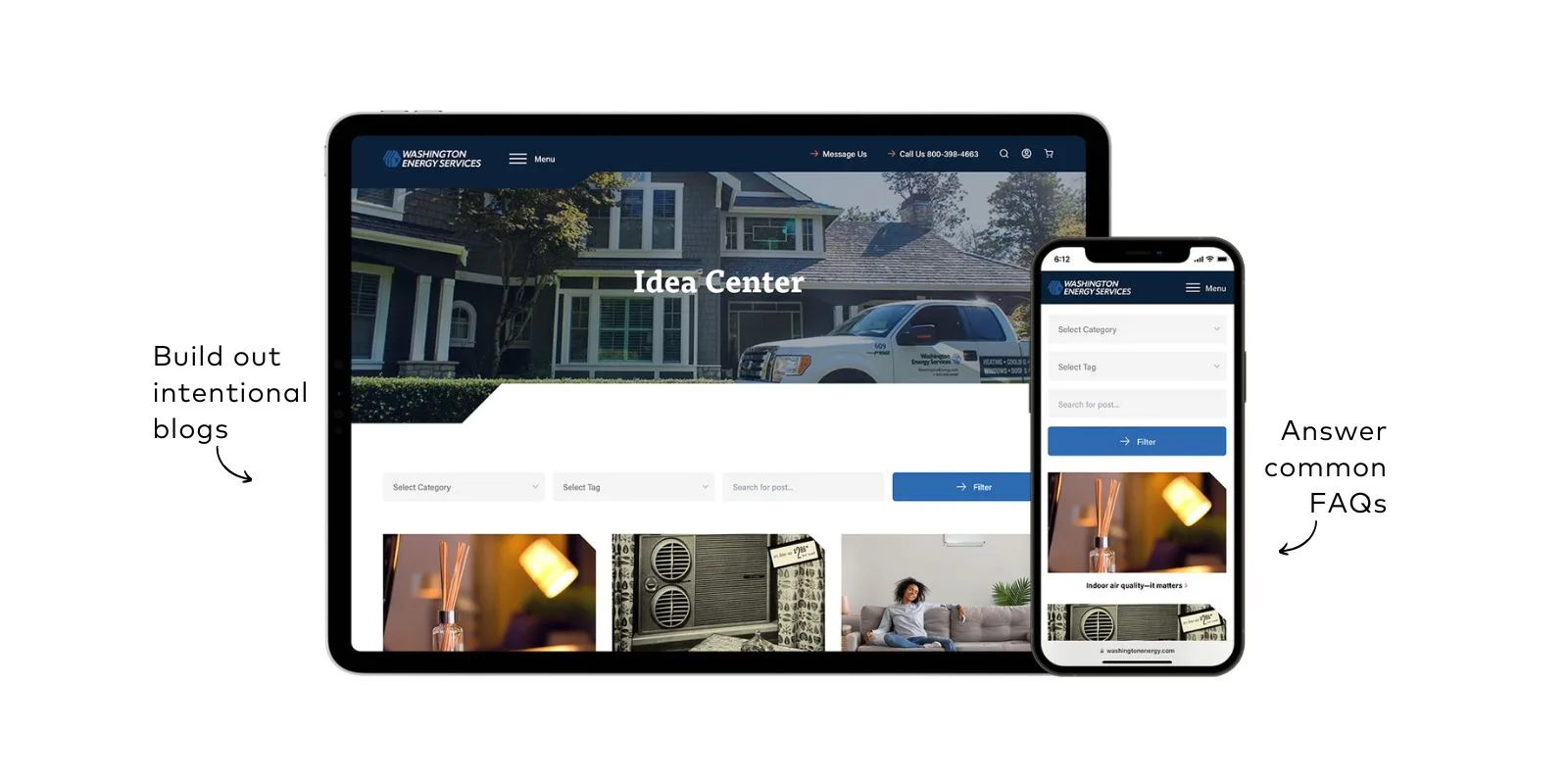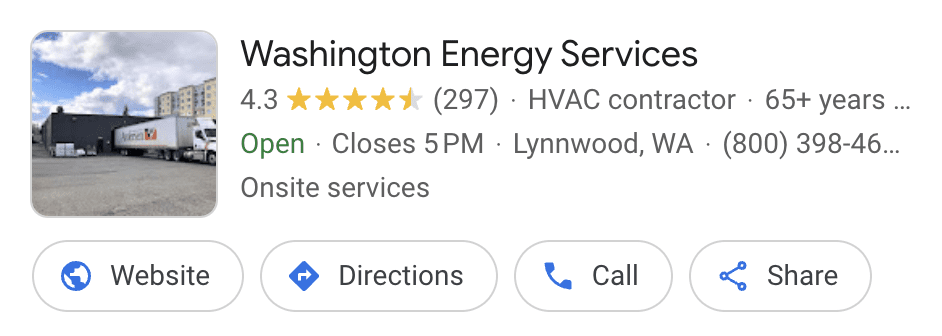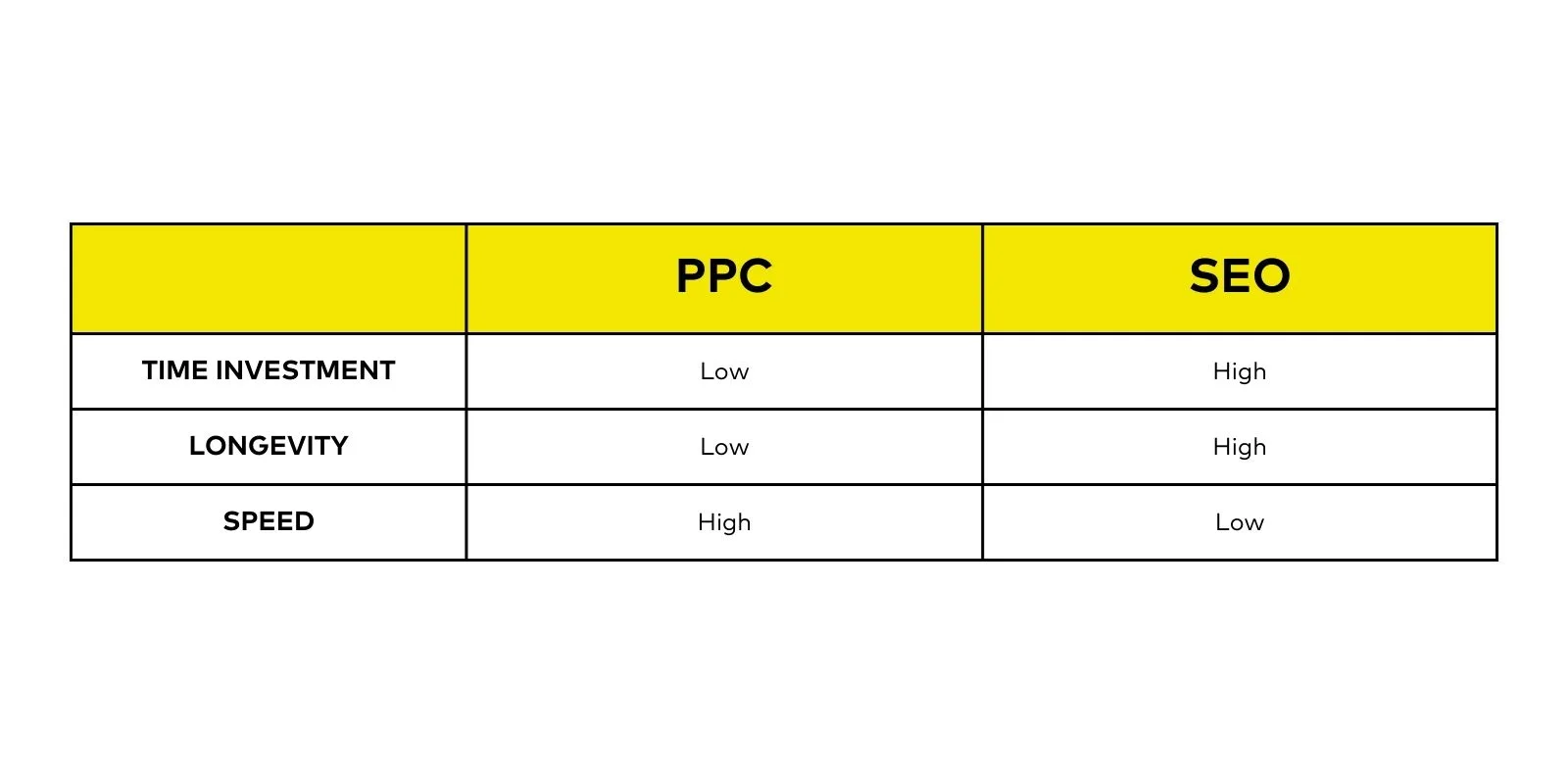Trying to get your website in front of your target audience when search engines have so many pages on the internet to choose from can be a tall task. Fortunately, there are both short-term and long-term marketing strategies you can employ to help make sure your resources, products, or services are getting in front of those who need them.
SEO (search engine optimization) and PPC (pay-per-click) advertising are two of these strategies.
A Few Key Terms to Know
Before we jump into the ins and outs of these two types of search engine marketing, let’s get to know some key terms:
- SEO (Search Engine Optimization) is the process of optimizing your website so that it appears organically on search engine results pages.
- PPC (Pay-Per-Click) is paid advertisements that show up as sponsored results on the top of search engine results pages.
- SERP (Search Engine Results Pages) are the pages of results that come up after you enter a prompt into a search engine. Typically, the goal is to get within the first results on the first page.
- Keywords are what search engine users type in when they’re looking for answers, products, or information. For example, someone searching for information about why their air conditioning isn’t working might search using keywords like AC turning off, malfunctioning AC, air conditioner keeps turning off, or short cycling.

What is SEO? (Search Engine Optimization)
Summed up in a word, search engine optimization is organic. This type of marketing includes any work you do to make your website and its content more attractive to search engine algorithms without paying for advertisements. All the SEO work you’ll do is to establish yourself as an authority on the subject at hand so that search engines will want to put your content in organic search results and users will want to click on it.
So, what makes for an authoritative website? Optimized speed, relevant content, a quality user experience, and high engagement rates.
As with most organic marketing, search engine optimization is a marketing strategy that takes time to implement. You’ll have to invest resources into researching relevant keywords with reasonable ranking difficulty, building out intentional blogs, answering common FAQs, collaborating with other businesses to create backlinks, and more to show search engines that your business’s content is what searchers are after.

On-page, Off-page, and Technical SEO
On-page SEO is the optimization you do directly on your website to make your business stand out to search engines. This can include:
- Content creation such as blog posts and other long-form content with specific keywords your potential customers are searching for.
- Creating meta titles and meta descriptions with relevant, competitive keywords. These are the titles and descriptions that search engines associate with each page on your website and the content that shows up on SERPs when your webpage comes up as a result.
- Image optimization for better website speed. A faster load time makes your website stand out to search engines and boosts user engagement.
- Adding internal links between your content when it makes sense creates a better user experience.
Off-page SEO is the work you do to connect your website with other reputable resources on the internet. This can include:
- Link building involves getting inbound backlinks from other websites’ content to your own. This is an area where you don’t want to take shortcuts. If you get backlinks from websites considered “spammy,” it can have a negative impact.
- Creating and editing your Google Business Profile (GBP) helps with local SEO and map pack visibility.
- Collaborating to get third party brand mentions like those seen in social media platforms or news articles.

Technical SEO is a type of optimization handled mostly through code changes that helps ensure crawlers find the pages you want them to and stay away from pages you don’t want to be seen. It also includes one of the most critical technical pieces for a site: optimizing for page speed performance.
Pros and Cons of SEO
- Creates organic traffic
- Avoids ad blindness
- Long-term results
- Doesn’t guarantee a good SERP position
- Larger time investment
- Slower results
While search engine optimization is more time-consuming and doesn’t offer a guaranteed position on search results, its longevity and organic traffic can’t be beat.
What is PPC? (Pay-Per-Click)

PPC marketing is paid advertisements that search engines will put in front of your target audience. When you make a Google search, for example, there will likely be a number of results that say “Sponsored” above them — these are PPC ads.
PPC advertising is great for building brand awareness, launching a new product, conducting short or long-term campaigns, or targeting a specific audience. These search ads provide more immediate results and give your brand time to shine on the SERP. They also allow you to conduct research through A/B testing to discover what your specific audience is looking for firsthand.
However, you have to pay to play, meaning your budget becomes directly correlated to your leads. You need to create PPC ad copy that resonates well with your audience and consistently test to see if anything beats it. You also still have to do keyword research to ensure that your ad’s messaging is relevant. Depending on the keywords you’re after, pricing can increase, and return on investment can decrease, so you’ll want to create a thoughtful PPC strategy.
Pros and Cons of PPC
- Smaller time investment
- Faster results
- Pay-per results
- Could be negatively impacted by ad blindness
Pay-per-click campaigns work quickly and are a great short-term strategy for marketers interested in getting specific content in front of their target audience.
Comparing the Two

Paid + Organic: Creating a strategy that makes sense for your marketing campaign
Pay-per-click and search engine optimization are both important marketing methods for getting your content in front of the right audience. When used with their strengths in mind, they can enhance your website and set your brand apart from competitors to search engines and their billions of users.
Many search engine marketing strategies include a thoughtful mix of the two. This could mean using PPC for targeted campaigns, for ranking when organic optimization isn’t working as expected, or for situations when you want faster results, and using SEO to focus on evergreen, long-term, authority-building content creation.
PPC and SEO Tools to Check Out
Google Search Console — Analyze impression/click performance, check sitemaps, handle technical issues, and see if Google believes you have any errors that need addressing.
Ahrefs & Semrush — Conduct keyword research, backlink analysis, and rank tracking.
Google Analytics — Explore your website’s traffic, conversions, and sources.
Google Ads — Create and manage your paid ad campaigns.
PageSpeed Insights & GTmetrix — Check page speed performance.
Could Your Search Engine Strategy Use Some Attention?
If you’d like help crafting an SEM (PPC + SEO) strategy that makes sense for your business goals, we’d love to be your partner in search engine enhancement.
Call us to start a conversation about digital marketing strategy at 253-300-4412!
